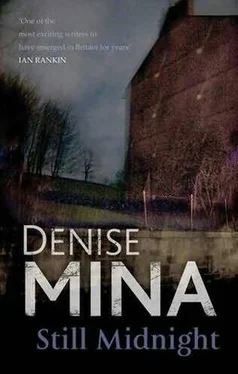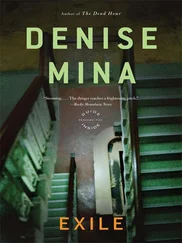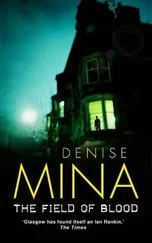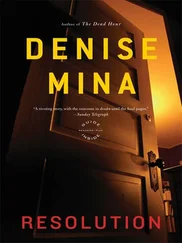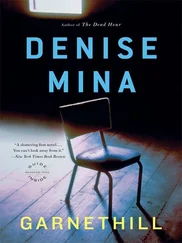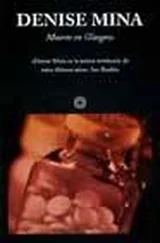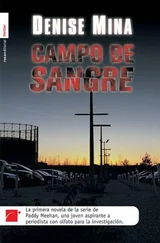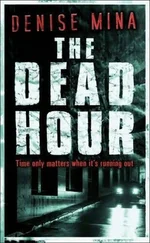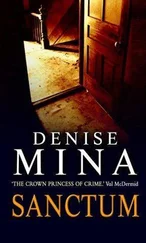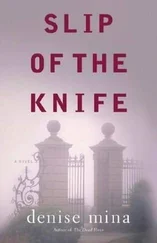Two grand was hardly evidence of massive international fraud. He could have saved it up himself from a bar job.
The receipts were confirmation of everything Omar had said the night before. It bothered her though. Three kids, a religious father and he was helping his unemployed youngest son to buy a Lamborghini. Not even the oldest son. And the father was frugal. He had a cheap white van parked in front of the house. That level of flash didn’t sound consistent. She looked at the receipt again.
Aamir Anwar’s account details had been blanked out by Bill Prescott but his name was there. Omar said yesterday that he could empty these accounts to pay for his father’s return. He had access to those accounts. There was nothing to stop him paying for a car out of them as long as he repaid the money.
She realised what it meant: Omar was a fantasist, he didn’t have money or a rich father, or a fraud scam. He was, at worst, optimistic about a bad business idea.
They had nothing but Malki Tait’s fingerprints and the chances were they were from an old foil.
The office seemed unnaturally quiet when she got there. She went into her office, shed her bag and jacket and looked at Bannerman’s desk. His computer was turned off and there was no coffee cup. She looked out into the corridor. MacKechnie’s office was shut and dark too. They were off together somewhere. They were off to see the Fraud Squad. She should have phoned ahead about the garage.
The incident room was busy, DCs following up on leads and scraps, making notes, phoning. She didn’t go in but turned and saw Harris sitting on his own in the small office, staring hard at a screen and looking even more pissed off than yesterday. She leaned into him. ‘Ye right?’
He groaned. ‘Up half the night with a blinding headache from watching this shite.’
‘Poor you. Where’s Bannerman?’
‘Have you not heard?’ He leaned forward and pressed the pause button. ‘Bannerman’s taken compassionate. His mum’s got pneumonia apparently. She’s in hospital.’
‘ Compassionate?’
‘Yeah, doesn’t know when he’ll be back.’
She bit the dirtiest word she knew back, chewing on her inner lip until she got back into her office and closed the door. Morrow sat down. The cunt was ducking the cunting fucking case because he was a cunt and he was using his stinking fucking mother’s pneumonia to do it. Killer fucking instinct, right enough. Cunt.
***
MacKechnie was fully aware of the situation Bannerman had put her in, but it was important for everyone to pull together and support him at this difficult time.
‘So,’ he said carefully, patting the desk in front of her chair, ‘it falls to you to take his place as the SIO.’
Morrow sat back in the office chair by his desk and read his face. If he knew his protégé was dodging the job because it wasn’t panning out, MacKechnie wasn’t letting on. They looked at each other for a long while until MacKechnie broke off. ‘You called me a racist a few days ago. You wanted this case so much you actually said that to me.’
She could see just how intensely he disliked her at that moment. Everything about her was wrong. It wasn’t just that she was a woman, wasn’t her habit of swearing or her brisk manner, her poor southsider accent, her lack of allies. What he disliked about her most was that she didn’t really give a fuck, because wherever she was, whatever was going on in the gentle heave and sway of office politics, all she really cared about in the world was gone. MacKechnie could sense that dark belligerent void and knew that he couldn’t touch her.
‘This case is a great opportunity for you-’
‘This case is big fat bollocks and you know it. The family are lying out of their arses. Thirty-six hours since he was taken and every minute that passes makes it less likely that we’ll find the man alive-’
MacKechnie couldn’t take it any more. He stood up and hissed at her, ‘Do your job. Get out.’
Harris pulled the car up carefully to the curb. He needn’t have been careful, there weren’t many other cars in the street and they were mostly tucked away in bricked-over gardens at the front of the houses, but he was delighted to be out of the office and away from the videos and enjoying kicking the facts of the briefing about.
‘Toryglen?’
‘Yeah, dropped him off at the main road, he said.’
‘Any Taits there?’
‘No.’
‘Didn’t you find anything on the shop’s CCTV tapes?’ she said.
‘Well, there are a couple of oddities but nothing major. I’ve highlighted them and asked Gobby to have a look at them, see if I was just going blind or what.’
‘Show them to me when we get back.’
‘Yeah. But boss, you know, even if it is VAT fraud it’s a bit irrelevant. Even if the family are screwing millions out of the VAT office that only tells us how they became targets, it doesn’t help us find the old man or get him out alive, does it?’
Morrow nodded. ‘Yeah, but finding out how they were targeted’ll lead us to the kidnappers. And when it comes to trial any defence lawyer’s going to bring it up to discredit them. Makes the whole case harder.’
‘S’pose.’ Harris opened his door and stopped with one foot in the road. ‘D’you reckon Bannerman’s bunking off?’
It would be breaking rank to say so. ‘DC Harris, whatever makes you say that?’ As they stood on either side of the car looking down the road, getting the measure of the place, she asked him: ‘Really, what makes you say that?’
He shrugged, still unsure of her. ‘Rumour.’
‘Oh.’ He wasn’t prepared to go into it. She liked that.
‘What’s the rumours about me?’
‘There aren’t any rumours about you, boss.’
She looked at him, worried they were skating close to sincerity and felt uncomfortable about it. ‘Shame. I started a couple of good ’uns.’
‘Except that you’re getting the squeeze.’
She almost choked, she’d never expected sympathy and it touched her deeply. She looked away, hiding her face.
They were poor houses. A long curving street of flat-fronted council houses with telephone and electrical wires slung across them, grey plaster facades that had blackened into the architectural equivalent of a skin complaint. A lot of the houses had been bought by the tenants though: incongruous wooden porches were built around a couple of doors. One of the houses had mock Tudor windows, all lead strips and flouncy nets behind. The gardens were well kept too, carefully organised gravel and flower baskets hanging from walls, garden pots too big to pick up and walk away with, and hedges carefully trimmed where they grew. She wouldn’t have chosen to live here but the people who did clearly liked it. Pink plastic toys littered the grass in one garden and a deflated football was resting by the curb in the street. Morrow noticed that the street was a dead end. It was a nice safe playground for kids. The street was empty though; all the children off at school, all the parents tending house or out working. At the end of the street a modern chapel loomed on a hillock like a village jail.
Malki Tait’s address was number twelve. It looked like a pensioner’s house from the outside. Modest china ornaments were lined up along the window sill; an Alsatian dog, a tiny China bouquet of flowers, a mouse holding a bit of cheese. The front step had just been washed, was damp but drying, the sweep of the wet handbrush lingering grey on the concrete.
The door was council, flat panelled and painted a jaunty cornflower blue, not a bought house, no money here, but the door hadn’t been changed since the seventies. The tenant had been here since then. The council stripped out older fittings when new tenants moved in. They offered new doors and windows to existing tenants too but the older ones usually wanted to keep things the same, being members of a generation who liked what they liked and didn’t believe decor was subject to yearly fashions.
Читать дальше
